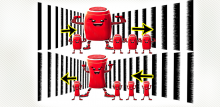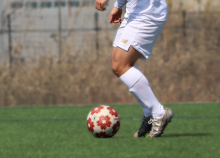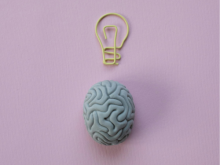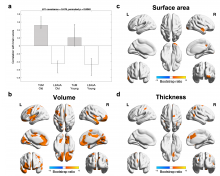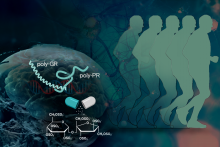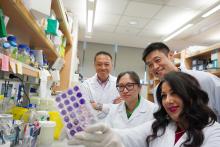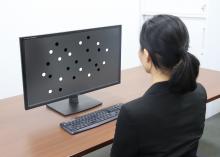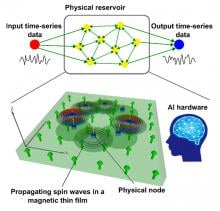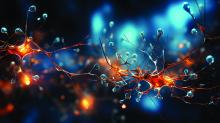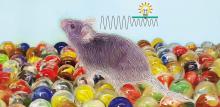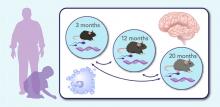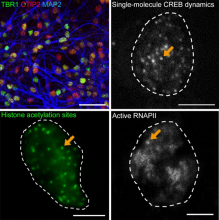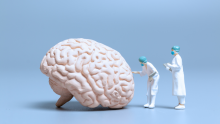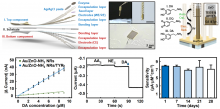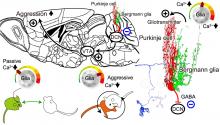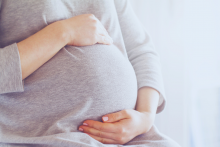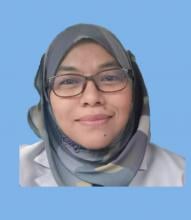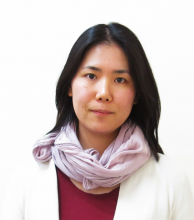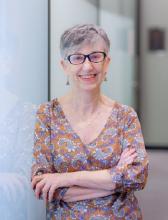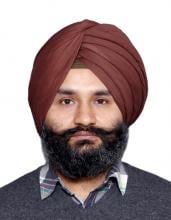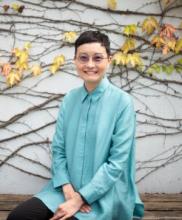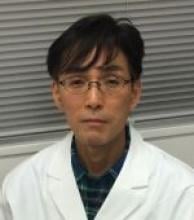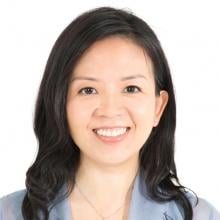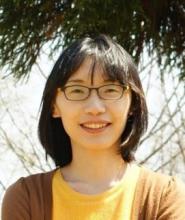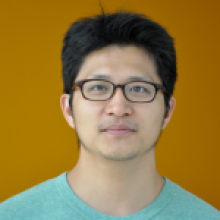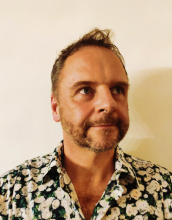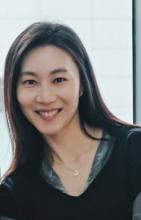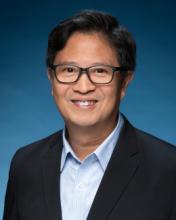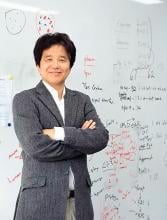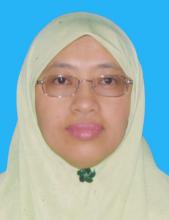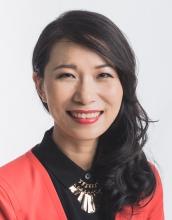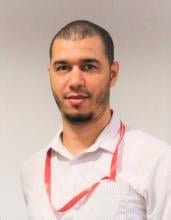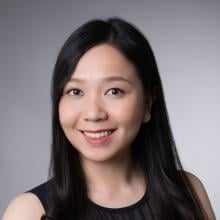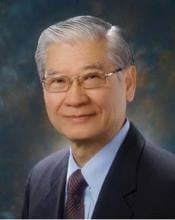Brain
News
26 Apr 2024
Our brains are truly miraculous. They can process vast swathes of information with very little energy supply. One of the many ways our brain may do this is through dilation of blood vessels, which enhances energy circulation and clears wasteful materials. A research team has recently developed a method that easily observes and monitors this phenomenon.
16 Apr 2024
Skilled players show stronger inhibition processes when electing not to pass the ball
12 Apr 2024
Zika virus vaccine targets brain cancer, 120-year quest to farm lobsters, Arctic nightlife bursts with sound, Eating a robot, Molecular orientation is key & New treatment for ALS and dementia. Read all in the latest Editor's Choice.
11 Apr 2024
Researchers from the Institute of Industrial Science, The University of Tokyo, find that providing lab-grown ‘cerebral organoids’ with connections similar to those in real brains enhances their development and activity
05 Apr 2024
Asia Research News monitors the latest research news in Asia. Some highlights that caught our attention this week are where music affects our bodies, a battery powered by the oxygen inside our bodies, and the largest bird family tree to date.
03 Apr 2024
Insights into ethical and legal ramifications of growing brain organoids from human fetal brain tissue
26 Mar 2024
Bilingualism is often associated with stronger executive function. SUTD and NUS scientists found that early bilingual acquisition can also protect cognitive processes that facilitate our social and emotional skills against normal age-related decline.
24 Mar 2024
Revelation of the molecular code for constructing brain neural circuits
With identification of the characteristics of excitatory synapses and memory cognition regulation mechanisms mediated by synaptic gene microexons
- A research team led by DGIST Prof. Jaewon Ko has unearthed the microexon molecular code for the formation of synaptic signal patterns through the synaptic adhesion protein LAR-RPTP.
- This finding is expected to provide crucial clues for the development of new brain disease treatments targeting protein complexes.
18 Mar 2024
Amyotrophic Lateral Sclerosis (ALS) and Frontotemporal Dementia (FTD) are neurodegenerative diseases that commonly occur in middle-aged people. FTD is second only to Alzheimer's disease in terms of dementia prevalence. Both ALS and FTD arise from neuronal degeneration through mechanisms that remain unclear. Dr. Yun-Ru (Ruby) Chen's team in the Genomics Research Center (GRC), Academia Sinica recently discovered a new pathological mechanism for neuronal degeneration using synthetic peptides. They also discovered that a disaccharide can increase neuronal survival and reduce degeneration. The result provides therapeutic strategies for future treatment of these neurodegenerative diseases. The study was published in the top international journal "Science Advances" on February 23, 2024.
15 Mar 2024
Asia Research News monitors the latest research news in Asia. Some highlights that caught our attention this week are what happens in our brains when we interact with dogs, our brain and eye activity when we focus on something, and how many children is the ‘ideal’ amount.
08 Mar 2024
Scientists from Duke-NUS Medical School have developed a new approach using the Zika virus to destroy brain cancer cells and inhibit tumour growth, while sparing healthy cells.
08 Mar 2024
Asia Research News monitors the latest research news in Asia. Some highlights that caught our attention this week are the mechanisms behind regrowing limbs and middle-age weight gain, and a new wound dressing combining mussels and silkworms.
08 Mar 2024
Findings could aid research into how information presentation might prevent human error
06 Mar 2024
A group of Tohoku University researchers has developed a theoretical model for a high-performance spin wave reservoir computing (RC) that utilizes spintronics technology. The breakthrough moves scientists closer to realizing energy-efficient, nanoscale computing with unparalleled computational power.
01 Mar 2024
Asia Research News monitors the latest research news in Asia. Some highlights that caught our attention this week are tiny tattoos for fish scales, how jellyfish can inspire forensics, and our intrinsic affinity for music.
26 Feb 2024
Magnetic nanorobots delivering nerve cells to targeted tissues could potentially be used to repair damaged brain tissue, as well as other organs.
15 Feb 2024
Excessive anxiety can lead to psychiatric disorders, but it is an evolutionary trait that has helped us survive by alerting us to potential dangers. Researchers at Tohoku University have investigated how astrocytes within the habenula, a region of the brain associated with emotional processing, can tune anxiety levels.
09 Feb 2024
Asia Research News monitors the latest research news in Asia. Some highlights that caught our attention this week are growing placenta organoids, a 90-million-year old fossil, and how COVID-19 can cause insomnia, but people were more relaxed during the emergency measures.
26 Jan 2024
- DGIST Prof. Kim Sohee and team develop soft, flexible, and highly durable brain electrode technology.
- Expected to be used in brain-machine interfaces without causing tissue damage, and to treat brain diseases.
15 Jan 2024
Unleashing stem cells from dog urine, Electronic Tongue, Tapping into human motion energy, How neurons network, and A radical use for plastic bags. Plus Communicating science two decades on. Read all in the latest Editor's Choice.
12 Jan 2024
Asia Research News monitors the latest research news in Asia. Some highlights that caught our attention this week are how a King Kongesque ape went extinct, how antibodies can make you dizzy, and a material that can break down harmful chemicals using the sun.
12 Jan 2024
Much is known about the added complication to pregnancy when it comes to the age of the mother, but recent studies show that the age of the father can also heighten the risk of neurodevelopmental disorders. A team of researchers has explored the impacts of paternal aging on microRNAs, the molecules that play a crucial role in regulating gene expression.
29 Dec 2023
Asia Research News monitors the latest research news in Asia. Some highlights that caught our attention this week are a dragon-like robot that can fight fires, how having a pet can avoid cognitive decline, and how an illusion can help us learn motor skills.
26 Dec 2023
Researchers from Osaka University and Shenzhen Bay Laboratory found that neuronal activity induces gene expression at sites of acetylation by promoting the emergence of cAMP response element binding protein (CREB), CREB binding protein (CBP), and RNA polymerase II. These proteins are targeted to the appropriate sites by CBP-mediated histone acetylation at activity-dependent gene loci.
14 Dec 2023
Scientists from Duke-NUS Medical School and their collaborators have come up with new methods to cultivate brain cells from stem cells to treat and study neurodegenerative diseases.
08 Dec 2023
- A research team led by Professor Jang Kyung-in at DGIST developed a brain-implantable dopamine measurement sensor for applying a stable structure based on a three-electrode system.
- The developed sensor facilitates a real-time dopamine concentration analysis by using only one flexible probe, increasing expectations for its application for developing customized probes for patients with degenerative brain diseases.
05 Dec 2023
While anger and aggression are instinctive behaviors found across many species, leaving these emotions unchecked can lead to conflict and violence. In a recent study, researchers at Tohoku University demonstrated that neuronal-glial interactions in the cerebellum determine the degree of aggression exhibited by mice. This suggests that future therapeutic methods could adjust glial activity in the cerebellum to help reduce unwanted aggression.
01 Dec 2023
Asia Research News monitors the latest research news in Asia. Some highlights that caught our attention this week are hungry, grumpy bears that don’t sleep, solving a 200-year-old mystery about dolomite, and how yoga can help people with epilepsy.
13 Nov 2023
New study finds prior dengue antibodies substantially raise risk of microcephaly, foetal defects with Zika infection.
27 Oct 2023
Asia Research News monitors the latest research news in Asia. Some highlights that caught our attention this week are parasites that borrow their hosts genes, how waste feathers can be used in hydrogen fuel cells, and a poor bird that was caught up in a powerful typhoon.
Events
10 Mar 2021
Upcoming side event at the 7th Asia-Pacific Climate Change Adaptation Forum: Partnerships to harmonize science information and knowledge at regional scales for enabling adaptation
The Khwarizmi International Award (KIA) acknowledges the efforts made by researchers, innovators and inventors from across the globe and to appreciate their high quality research work and contributions to different fields of science and technology.
Researchers
Hamidah Othman, obtained her Bachelor of Nursing Science in 2008, Master of Nursing in 2013 from the University of Malaya and PhD in Nursing, 2022 from International Islamic University Malaysia. Her interest was a critical care in nursing and psychological need towards family members with patients’ admit to the Intensive Care Unit, End of Life care and research in relation to the evidence based practice in nursing. She is currently working as Head and Lecturer at School of Nursing Science, Faculty of Medicine, University of Sultan Zainal Abidin, Kuala Terengganu, Malaysia.
I am a japanese physician-scientist in gastroenterology, especially in neurogastroenterology.
Assistant Professor Izumi Fukunaga grew up in Japan and Malaysia and went to London to study neuroscience. Her research focuses on how sensory circuits in the brain function.
Professor Gail Tripp is a neurobiologist who established the OIST Children’s Research Center to undertake research on the nature, etiology and management of ADHD with English and Japanese speaking children and families.
Dr Singh is working as an Additional Professor of Radiology. Besides specializing in medical Imaging, he has received certifications in Global Health, Science Diplomacy and Biomedical Research. His areas of interest and expertise are as follows: Radiology, Nuclear Medicine, Medicine, Health, Public Health, Global Health, Health Policy, Health Systems, evidence-based healthcare and Healthcare leadership.
The Chinese University of Hong Kong (CUHK)
Professor Winnie Mak Wing-sze is the director the of Diversity and Well-Being Laboratory and currently a Professor at the Department of Psychology, the Chinese University of Hong Kong.
Hong Kong Baptist University (HKBU)
Dr. Iyaswamy Ashok is currently a Research Assistant Professor at School of Chinese Medicine.
Osaka City University
Takami Tomiyama is currently an Associate Professor at the Graduate School of Medicine of Osaka City University.
The Education University of Hong Kong (EdUHK)
Dr Esther Lau specializes in clinical psychology and clinical neuropsychology. Currently, her primary line of research aims to uncover some of the complex relationships between sleep, emotional and cognitive functioning.
Daegu Gyeongbuk Institute of Science and Technology (DGIST)
Prof.Sohee Kim's research focuses are the development of 2D and 3D flexible neural interfaces including brain interfaces, peripheral nerve interfaces, retina interfaces; polymer-based microfabrication technologies for soft bio-MEMS (micro-electro-mechanical system); and electrophysiology tools for zebrafish
Daegu Gyeongbuk Institute of Science and Technology (DGIST)
Prof. Jinsoo Seo's research focuses on mechanisms of cellular dysfunction and cognitive decline in aging brain, genetic risk factors for neurodegeneration as well as the effect of environmental factors and lifestyle on Alzheimer's disease.
City University of Hong Kong (CityU)
Prof. Jan is interested in how sensory processing interpret auditory inputs to the brain are transformed to underpin subjective perceptual qualities of sound such as pitch, timbre and sound source location, and how the brain learns to adapt to the statistical structure of the sounds in our environment to form efficient neural representations of sound and to support auditory scene analysis.
Daegu Gyeongbuk Institute of Science and Technology (DGIST)
Prof. Hyeon- Ae Jeon is a principal investigator of Partner Group of the Max Planck Institute for Human Cognitive and Brain Sciences at the Department for Brain and Cognitive Sciences, DGIST.
Hong Kong Baptist University (HKBU)
Professor Ken's current research mainly focuses on the causes and treatments of neurodegenerative diseases. His lab has developed a nanomaterial-based technology for harvesting autologous neural stem cells from the brain of living subjects.
Dr. Indika Neluwa-Liyanage is a lecturer in Biochemistry at the Faculty of Medical Sciences of University of Sri Jayewardenepura. His research focuses on the metabolic alterations underlying autism spectrum disorders and inherited metabolic disorders.
Universiti Malaysia Sabah
Dr. Connie Cassy Ompok is an early childhood education expert and a Senior Lecturer at the Faculty of Psychology and Education, Universiti Malaysia Sabah. She Started her career in Early Childhood Education as a preschool teacher (2004-2007), a lecturer in early childhood education at the Malaysian Institute of Teacher Education (2008-2016) before serving as a Senior Lecturer in Early Childhood Education at UMS (2016 until now).
Korea Advanced Institute of Science and Technology (KAIST)
Greg Seong-Bae Suh is an associate professor in the Department of Biological Sciences, Korea Advanced Institute of Science and Technology (KAIST).
University of Malaya
The Neuroscience Research Group is a multi-disciplinary team investigating the nervous system. They are focusing on animal behavioral models for memory in the laboratory. They are studying the effects of food, such as Habbatus Sauda/Black cumin (Nigella sativa) and honey, on brain microstructures and memory. They also compare Islamic and neuroscience perspectives on issues like learning and sleep for children with and without autism spectrum disorders.
Prof Yow is the Associate Head of the Humanities, Arts and Social Sciences at Singapore University of Technology and Design (SUTD) and leads the SUTD Language and Social Cognition Lab where they look at how language impacts on our cognitive functioning and understanding of the social world. Her research focuses on exploring and studying patterns of dual language use, how language environment may influence how children perceive communicative cues and how technology influences the way we communicate, and how it can be harnessed in ways that can improve or slow down the decline of cognition and social cognition.
Nanyang Technological University
The prospect of favorably influencing brain health through dietary habits has gained much interest. My research interest explores the therapeutic potential of functional foods and phytonutrients as neuroprotectants against mitochondrial diseases and cerebral toxoplasmosis. The scientific findings support nutritional intervention as a viable strategy for the management of human brain disorders.
Hira Khalid is an associate professor at the Department of Chemistry of Forman Christian College University, Lahore, Pakistan.
Duke-NUS Medical School
Prof. Wang Hongyan is the deputy programme director and principal investigator of the laboratory of Neural Stem Cell at Duke-NUS Medical School, Singapore.
International Islamic University Malaysia (IIUM)
Ramzi is an Assistant Professor at International Islamic University Malaysia (IIUM).
International Institute for Integrative Sleep Medicine (WPI-IIIS), University of Tsukuba
Solving the mystery of sleep ~Developing new intervention methods for healthy slumber~
International Institute for Integrative Sleep Medicine (WPI-IIIS), University of Tsukuba
Mechanisms of sleep and memory, and their disease models
International Institute for Integrative Sleep Medicine (WPI-IIIS), University of Tsukuba
Takeshi Sakurai is a professor at the International Institute for Integrative Sleep Medicine, University of Tsukuba, Japan.
Tohoku University
We investigate the brain through visual functions to apply the knowledge to human engineering and image engineering.
Tohoku University
Viteroretinal surgeon working on developing treatments for retinal dystrophies and many other retinal diseases.
Kanazawa University
Dept of Medical Neuroscience, School of Medicine, Kanazawa University
A robotics scientist focused on innovating robotic devices for interventions requiring magnetic resonance imaging (MRI) guidance, e.g. stereotactic neurosurgery and cardiac catheterization.
Giants in history
David T. Wong (born 1936) is a Hong Kong-born American neuroscientist who is best known for discovering the antidepressant drug fluoxetine, better known as Prozac.


